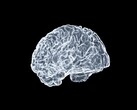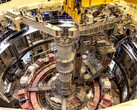Marathon Fusion, based in San Francisco, proposes a fusion reactor concept where fast neutrons from a 1.5 gigawatt thermal tokamak transmute mercury-198 into stable gold-197. The layered reactor blanket includes mercury and lithium near the core, surrounded by molten lithium-beryllium-fluoride salts. According to simulation results, the setup could generate up to 3000 kg of gold annually, with a market value of approximately 180 million euros, without reducing electricity output.
The same blanket would produce tritium by slowing neutrons and capturing them in lithium, creating a closed fuel cycle. However, the produced gold includes small amounts of radioactive gold-198 and would require about 14 years of decay before commercial use. The research is based on simulation only and has not undergone peer review or physical validation.
While the nuclear reactions involved are plausible, the entire proposal remains speculative. Without a functioning commercial fusion reactor, the economic and technical feasibility of gold production through neutron transmutation cannot yet be confirmed. If proven, it could attract interest from both energy investors and the advanced materials industry.













